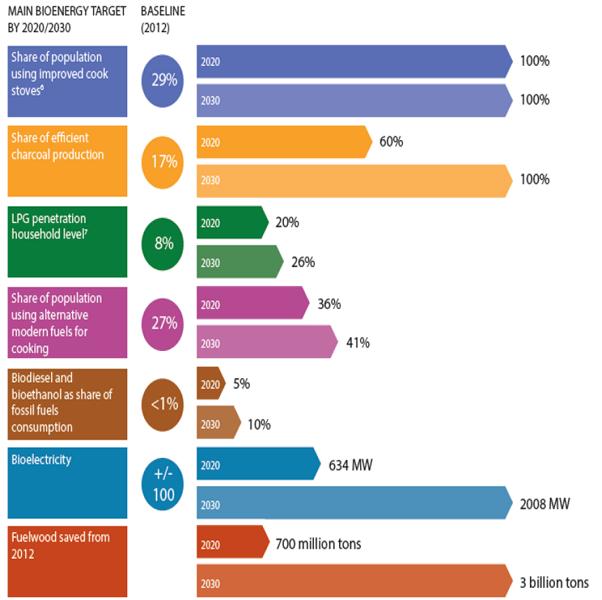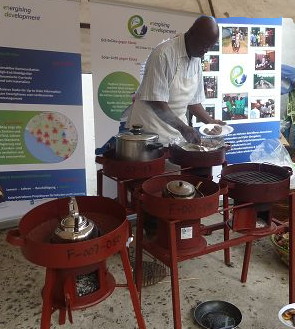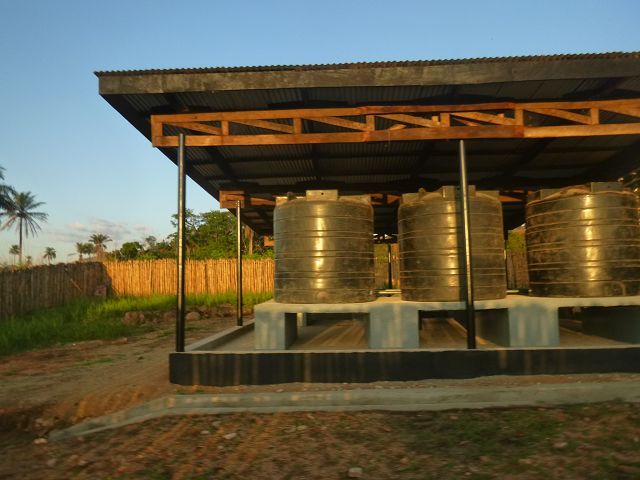In Kwendin, Nimba County, 1000KW Biomass Energy Plant uses wood chips, coconut and palm kernel shells to produce affordable energy for over 200 households and more than 2,500 residents.The Plant was also planned to supply power to schools, churches and the business community. This plant had been set up as a pilot project financed by USAID. The Rural and Renewable Energy Agency (RREA) is involved in the supervision. A community cooperative operates and manages generation and supply of electricity.

As a contribution of the Region to the Sustainable Energy for All (SE4ALL) Initiative, the Ministers of Energy adopted the ECOWAS Bioenergy Strategy framework in October 2012 with a special focus on the promotion of modern bioenergy. The ECOWAS Bioenergy strategy is consistent with the Africa Bioenergy Policy Framework and Guidelines.

- Creating access to improved cookstoves
- Promoting an affordable, locally produced stove (the Red Fire Pot). - Test quality and provide advice concerning larger stoves for institutions

Sorlumba, Lapaloe Tembio community, and a neighboring community in Foya district, Lofa county can now lighten their houses with electricity generated by palm oil. Altogether, 205 houses in three communities can receive electricity. The USAID funded project Sorlumba Community Biomass Electricity Pilot Project was started in 2013 by Winrock and is now operated by ARICA.